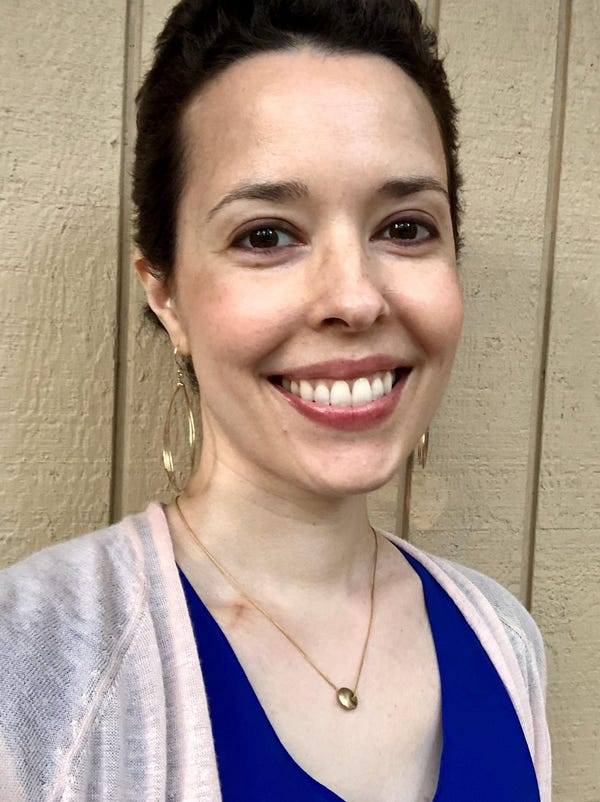This October, let’s support breast cancer fighters by ensuring access to high-quality health care
For many people, October signals a distinct shift: It means the beginning of pumpkin spice season, sweater weather, and planning for the holidays. It also marks the return of Breast Cancer Awareness Month, with pink-themed events and decorations making an appearance almost as striking as the crimson and auburn fall foliage.
This season provides an annual opportunity to raise the visibility of the most frequently diagnosed type of cancer in women. As Columbia physicians don pink shirts and local businesses market products in shades of rose and magenta, we will be told that breast cancer is a top killer of women — second only to lung cancer — and 1 in 8 women will be diagnosed in their lifetimes. We will also be reminded that prevention and early detection save lives. What we are less likely to hear is that we could save and improve even more lives if we ensured that everyone had access to affordable, high-quality health care.
I know how much strong health care matters because I have spent the past 14 months battling for my life. In August 2019, I found a lump during a self-exam, and thanks to my insurance policy and the expediency of the University of Missouri health system, I was quickly scheduled for a mammogram, ultrasound and biopsy. Since then, I have spent countless hours receiving treatments at Ellis Fischel Cancer Center and University Hospital.
Intense, widespread pain, crushing fatigue, and nerve damage are just a few of the many side effects I have experienced from those life-saving yet grueling treatments. I can only begin to imagine how much harder it would be to navigate a cancer diagnosis without financial stability.
For example, without insurance, the bill for each of my four chemotherapy drugs would be $70,000 to $100,000. The hospital stay for the bilateral mastectomy and first reconstructive surgery I had last winter would have neared $90,000, and some of my oral medications would cost more than $500 per month. Cancer bankrupts people at 2.65 times the rate of those without cancer, quickly depletes savings accounts and forces many patients to return to work before their bodies are truly ready.
I am grateful that this has not been the case for me. So far, I have never had to wonder where the next month’s mortgage payment would come from. I have never had to ration medication or turn down a drug because the price was too high. I have never had to decide not to pay one bill just so that I could pay another.
You would think, then, that with my economic privilege I would not have to worry about the financial side of cancer. You would also be wrong.
It is not unusual for me to receive unexpected hospital bills or insurance denials. My echocardiograms, for example, are a standard part of care for a breast cancer patient receiving a cardiotoxic drug called Herceptin, but on multiple occasions my insurance company has denied coverage, wrongly stating that the procedure is medically unnecessary. Each time this happens, my oncology team and I must spend extra time appealing the claim — time that should be going toward patient care. Then there are the procedures that get denied for being experimental, like a test done to assess the extent of my nerve damage. Or the basic blood draws that get turned down simply because they need to be submitted using a different medical code.
If this sounds exhausting, that’s because it is. And if I am exhausted, how do low-income families and families of color cope when they are more likely to get diagnosed at a later stage and less likely to have access to proper care?
Cancer fighters deserve better support. The disease is difficult enough without the indignity of worrying about how to pay for treatment. That’s why I urge Columbia voters this November to support candidates who recognize that health care should be a human right.
Cancer can happen to anyone. I am a good case example: At age 38, I am relatively young, maintain a healthy weight, eat a plant-based diet, am physically active, don’t smoke, don’t drink — the list goes on. While healthy behaviors are important, none of that was enough to overcome the genetic mutation that likely contributed to my cancer or the environmental factors that may have played a role.
Even if you don’t have cancer, chances are you know and love someone who does. If we make sure our elected officials value health as much as voters value their loved ones, we can make sure that everyone can get the care they need — and deserve.
Heather Gehlert is a breast cancer survivor, writer and former journalism instructor. She lives in Columbia.
Source: Columbia Daily Tribune
Support families fighting financial toxicity of cancer –here
